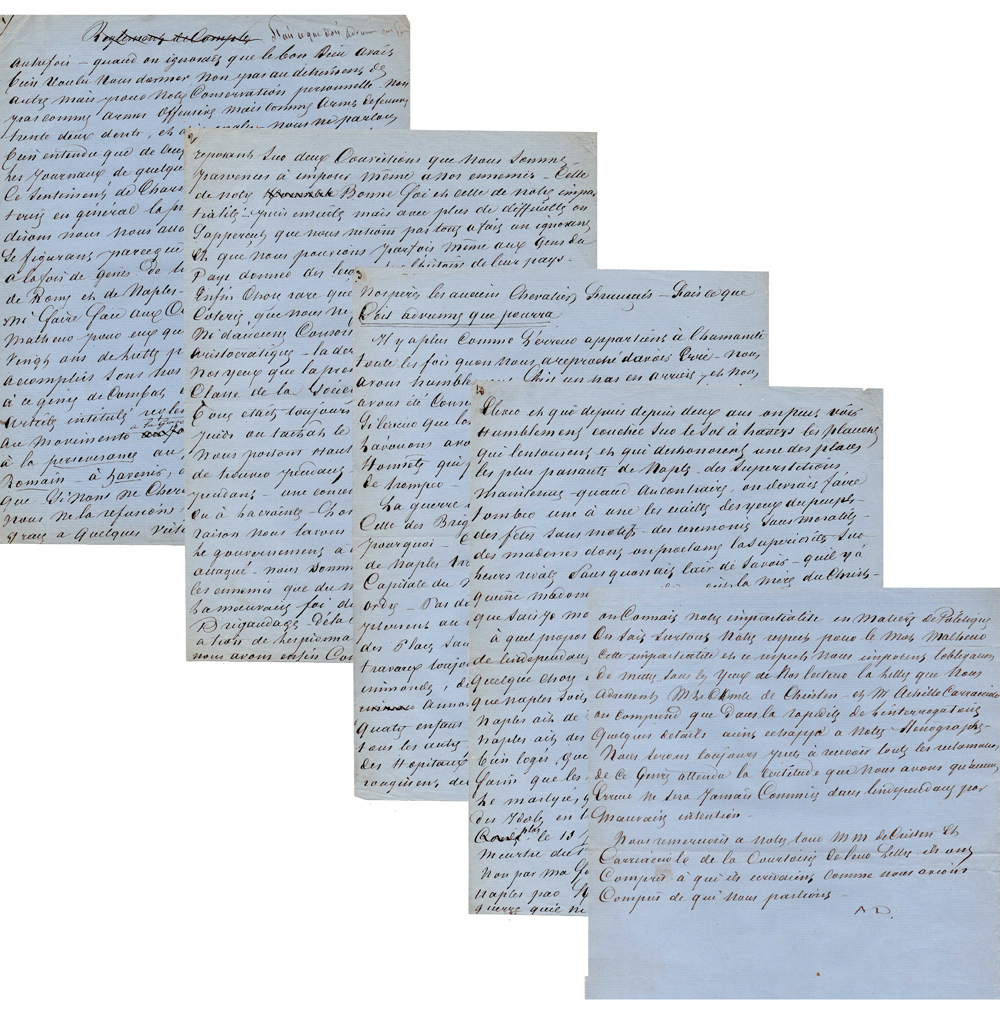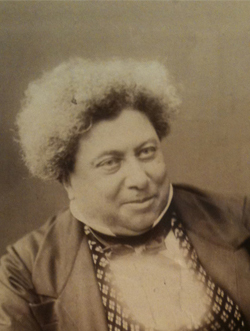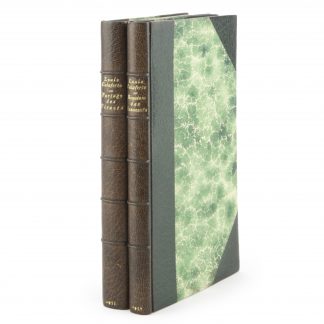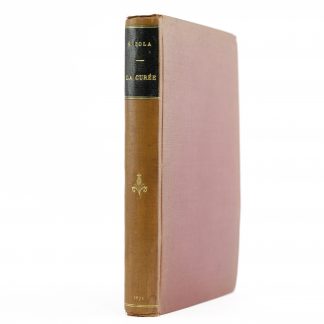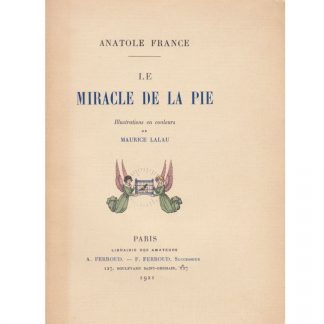Description
AUTOGRAPHIC MANUSCRIPT SIGNED "AD", 5 pages on blue paper, with a few erasures and corrections.
Article for L'Indipendentethe Neapolitan newspaper of which Dumas was editor-in-chief, published on its front page on 10 April 1863 in Italian under the title Fa cio' che devi avvenga che puo'.
The manuscript bears the original title of Settling scorescrossed out and replaced by the motto dear to Dumas Do what you must, come what may.
Dumas refers to the attacks by various newspapers against L'Indipendente :
"In the old days, when we didn't know that the good Lord had kindly given us, not to the detriment of others, but for our personal preservation, not as offensive weapons, but as defensive weapons, thirty-two teeth and ten fingernails - we are of course only talking about two of the hands - our newspaper colleagues, whatever their colour, had that feeling of charming hospitality that generally characterises the Italian press. Our colleagues, we say, attacked us indiscriminately, thinking that because the blows were coming from Genoa, Turin, Verona, Rome and Naples all at once, we would not be able to withstand the blows or respond: but unfortunately for them, forty years of historical studies, twenty years of polemical battles, three revolutions accomplished before our very eyes, had armoured us for this kind of combat, and all we needed was a few articles entitled Settlement of accounts to prove to the public that we were the best in the world. Movimento at the Gazette of Turin, in L'Espero, à L'Armonia, à Perseverance, at Verona Diary, à The Roman Observer, à L'Avenirat the Pungolo and to La Patria that if we never sought battle we never refused it - and thanks to a few easy victories, we had a certain calm based on two convictions that we managed to impose even on our enemies - that of our good faith and that of our impartiality. Then, with more difficulty, it was realised that we were not completely ignorant and we could sometimes even teach the locals about the history of their country. Finally, and this is a rare thing, we didn't belong to any clique, we weren't part of any Camorra or Consorteria. And that to be an aristocratic sect, the latter was as despicable in our eyes as the former, which belongs to the lowest class of society, and that for us mud was always mud, whether it dirtied our feet or stained our faces. This is why we are so keen to challenge anyone to find, during the already long existence of L'indipendenteIt was a concession to friendship, interest or fear. When the government has been right we have strongly supported it, when the government has been wrong we have frankly attacked it. We are friends of all that is good, honest and brave. And we are the enemies only of lies, speculation, bad faith, theft, slander, brigandage, stupidity, pride, denunciation, espionage, darkness and ignorance. Finally, we have always followed the motto of our fathers, the ancient French Knights: Fais ce que dois advienne que pourra.
And there's more: as error belongs to humanity, whenever we have been reproached for having erred, we have humbly taken a step backwards and conscientiously sought the truth. If the error of which we were accused was real, we confess it with the proud humility of an honest heart that can err, but is incapable of deceiving.
The fiercest war we've waged after that of the brigands is the war against the municipality. And why is that? It's because the Municipality of Naples treats Naples, not like the third capital of the world, but like a tenth-rate city, with no slaughterhouse, no water, fountains that weep instead of gushing, dirty and tortuous streets, squares without trees, alleys without light, work always started but never finished, filthy prisons, fountains that weep instead of gushing, alleys without light, work always started but never finished, filthy prisons, fountains that weep instead of gushing, dirty and tortuous streets, squares without trees, alleyways without light, work always started and never finished, filthy prisons, hospices worse than prisons, an Annonciata where each nurse breastfeeds four children, if that can be called breastfeeding in all the other countries instead of breastfeeding one would say starving, hospitals where surgeons and doctors are ashamed to take foreigners, a column of martyrs that must always be raised and that for the last two years can be seen humbly lying on the ground through the planks that surround it and disgrace one of the busiest squares in Naples, superstitions that are maintained when, on the contrary, the scales should be removed one by one from the eyes of the people, festivals without motive, ceremonies without morality, Madonnas whose superiority over their rivals is proclaimed without anyone seeming to know that there is only one Madonna in the world, and that is the Mother of Christ. What do I know!
About this war, did the editor of L'Indipendente If he is from Naples, will something come back to him, that Naples should not have coal, that Naples should be clean, that Naples should be lit, that Naples should have graves, that Naples should have water, that Naples should have monuments, that the beggars of Naples should be well housed? that the foundlings of Naples do not starve, that the sick of Naples are cured, that we glorify the martyrs, that we celebrate the people, that we no longer carry the idols in triumph, that we no longer glorify 13 June, that is to say the anniversary of the murder, the pillaging, the burning and the hanging? No, by my faith! The editor of L'Indipendente is in Naples by chance, and if he tires of waging a war that he does not believe to be entirely useless. Of course, we are known for our impartiality when it comes to polemics. Above all, we are known for our respect for the word misfortune. This impartiality and this respect oblige us to present to our readers the letter addressed to us by Mr Count de Christen and Mr Achille Carracciolo. It is understandable that our henographer should have missed a few details in his rapid questioning.
We will always be ready to receive any claims of this kind, given the certainty we have that no error will ever be made in the way we conduct our business. L'Indipendente by malicious intent.
We would also like to thank Mr de Christen and Mr Carracciolo for the courtesy of their letter. They understood who they were writing to, just as we understood who we were talking to.
A.D."
The end of the manuscript differs slightly from the printed Italian version, in which an additional paragraph has been added on the subject of newspapers. L'Avvenire and Campagna. The two names are also anonymised.
RARE DOCUMENT.
Black ink.

